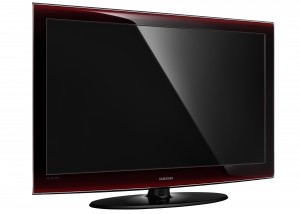Every year, computer screens and LCD TVs evolve closer together. The technology is very much the same these days, which makes these devices somewhat interchangeable. In fact, a very good TV that’s relatively new will easily make for a more comfortable screen than a computer monitor from a few years ago.
As such, more and more people are starting to use their LCD TV’s as external screen for their laptop computers. Should you consider doing that? You should at least try it, but whether or not you’ll find the experience enjoyable will depend on your computer and TV specs, as well as your intended uses. This article will run you through the pros and cons.
Potential Benefits
Very practical and easy: If your laptop has a HDMI port, connecting it to your TV is extremely simple; you just need an HDMI cable to carry the audio and video signals from the laptop to the TV. In most computers, this is an extremely simple plug-and-play affair: just connect the cable, set your TV do the HDMI port, and in a matter of seconds your desktop will show in the TV screen. If you laptop just features VGA-out it’s still very much the same process, except you’ll need a separate cable for the audio.
Increased screen size: whereas laptop screens aren’t usually bigger than 17” (otherwise it wouldn’t be much portable), LCD TV or Plasma can go upwards from 100”, which makes for a significantly bigger screen size. This is great whether you’re just watching some videos gather the family or friends around the computer.
Secondary screen: by connecting your TV to the laptop, you can choose having the same picture on both screens or using either as a secondary screen to extend the desktop. This is a practical solution in a number of scenarios, and may increase your productivity.
Extreme comfort: if you connect your laptop to the TV and get a wireless mouse, you’ll be able to control the set-up from a distance. Which means you can sit or recline in the couch browsing the Internet in a big screen, or just watch your media files and play video games. This can be very practical and comfortable, when it comes to those moments you want to relax.
Potential shortfalls
Blurry text: TV screens just aren’t that good when it comes to displaying crisp fonts. Even if you own a top of the line 1080p HDTV, text just won’t look quite as good as in a proper computer screen .This effect is most noticeable if you’re writing text and sitting close to the TV (if you sit further away from the TV the text should look sharper — but depending on your eyesight and the TV size, you may find the set-up is not that comfortable for reading.
Slower response time: the response times on LCD TV’s are usually slower than on a LCD meant for the computer; this means the screen takes just a tad longer to update. We’re talking about a difference of milliseconds though, so it really won’t be noticeable in your average activities. It could be a problem if you’re a dedicated action gamer, since the delay in response can be enough to interfere if your accuracy and gaming reflexes, by blurring some of the most action paced scenes.
Higher electricity bills: by connecting your laptop to your LCD TV, you will obviously spend more energy than using just either device at a time. And if you make it a habit of always connecting your laptop to the TV, it’s quite likely your energy bills will turn up a bit higher.
Conclusion
Maybe you won’t really like the experience, or maybe you’ll just start using your TV as your main computer screen and never go back. But all in all, you should at least try connecting your laptop to your TV, if you have never done so. It couldn’t be simpler, especially if both devices have HDMI ports!

